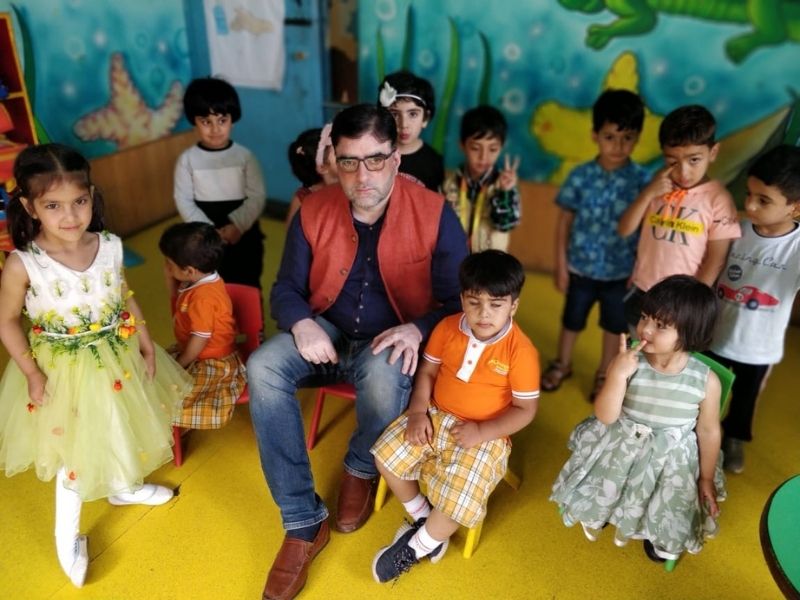Even as schools across the country are limping back to normalcy with in-person classes resuming post-pandemic, schools in Kashmir are confronted with a distinctive set of challenges.
Whereas in the rest of India, schools remained shuttered for two years during the Covid-19 pandemic, schools in Kashmir have been shut for three years now with unprecedented political developments and security issues crippling normal life in the strife-torn state before the pandemic struck.
In an interview with Reshma Ravishanker of EducationWorld, educationist-entrepreneur Kaiser Bhat talks about how Kashmir’s education system has failed to address the impact of prolonged closure of schools on students’ mental health and to extend the necessary support for facilitating their transition back to school post-pandemic.
A BTech graduate of the Open University of British Columbia, Kaiser Bhat pressed on for an MBA degree from St Joseph’s College, Mumbai. With a rich experience of 15 years in early childhood education, he presently serves as the territory head for the Early Childhood Association, Kashmir. Also founder of Orange International Preschool, Srinagar, Bhat was invited by the Government of Jammu & Kashmir to lead the design and construction of 100 government-funded kindergartens in the state.
You rue that Kashmir’s schools cannot be treated in the same manner as other schools across the country because they have been impacted not just by the pandemic but also by various political developments, frequent terror attacks and other acts of violence for several years now.
Kashmir has been impacted since time immemorial due to political developments, constant threat of terrorism, communal clashes and various other uncertainties. Schools across the country were shut down at the outset of the pandemic in March 2020. But schools in Kashmir were closed way back in July 2019 because of the widespread unrest following the Union government’s unilateral decision to abrogate Article 370. Curfews were imposed for months on and off. Schools could not conduct offline classes under such circumstances. Even though schools attempted hybrid teaching-learning, it did not ensure continued education due to suspension of Internet services in the state to contain the unrest. Kashmir’s schools are now set to open after three years and there is much to cope with.
Now that schools are reopening, what are some challenges that you think are specific to Kashmir’s schools?
During the two years of the pandemic, schools across the globe were impacted. So were schools in Kashmir. However, what is unfortunate is that there was no assessment of the aftermath. Schools are behaving as if students are returning after a curfew has been lifted. They are hoping to go about business as usual. No one has considered the real damage caused by the pandemic. By the time educational institutions wake up, it will be too late.
What kind of impact has the pandemic and pre-pandemic closure of schools had on students and teachers?
Like I said, there has been no formal psychological assessment in the state to understand what children have gone through during these three years of schools closure. Students are not mentally prepared to give undivided attention to what is being taught in the classroom between 9 am and 5 pm. They have become irritable, lack focus, are constantly craving for screen time, show signs of utter lethargy and have no interest in extracurricular activities at all. Schools are making no efforts to address this. Even the teachers have been through a lot in their personal lives during the last three years. We have not bothered to ask if they have returned with a mental capacity to be able to deliver.
How can this gap in learning and overall development of students be addressed? What are some ways in which the government can help?
This is an issue which schools, parents and students tackle together. Schools must focus on the mental and emotional wellbeing of students first. Psychologists must be appointed to offer individual counselling to students. Psychiatrists working in the government sector can be appointed on a consultancy basis in schools. Seminars, webinars, workshops and counselling sessions must be held in schools. Kashmir cannot be treated like any other state. Students in Kashmir need to be provided support even before bringing them back to school and going about teaching them as usual.
Also read: Avoid getting provoked: Students from Jammu & Kashmir urged
